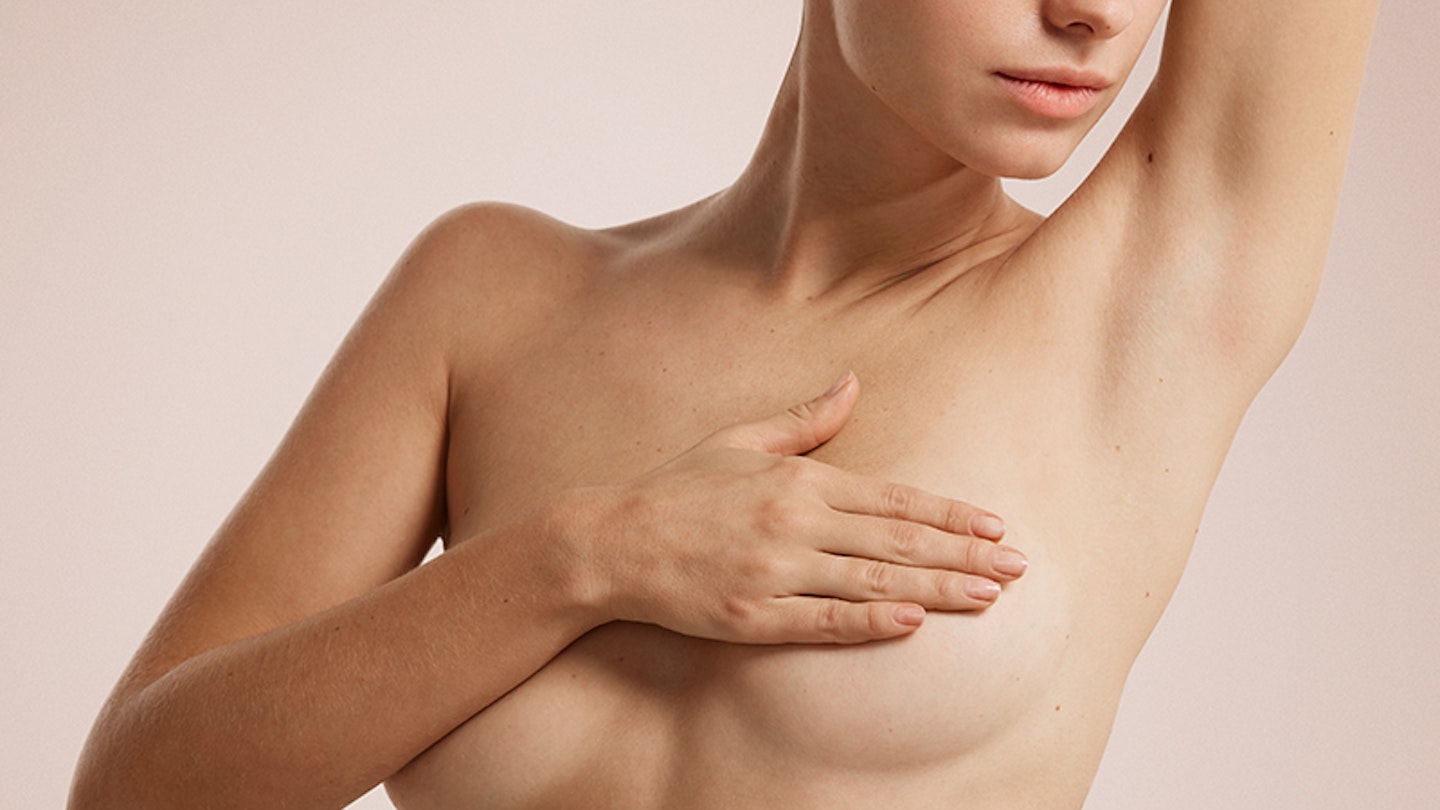Pregnancy is full of surprises with how many changes your body goes through, but do you know about all the pregnancy breast changes?
When you’re pregnant, you’ll have hormones flying around all over the place which, amongst other things, has a big impact on your breasts. In fact, they only complete their full development when you’ve experienced pregnancy.
According to Marley Hall, midwife and mum of 5, our breasts change ready for feeding. 'Female breasts change during pregnancy simply to get ready for feeding a baby. It’s the hormonal changes that take place during this time that have a huge impact on our boobs.
'There are several breast changes that occur which may or may not be noticeable such as:
-
An increase in size caused by the milk ducts enlarging
-
Darkening and enlargement of the nipple and areola
-
Prominent veins
-
Heavy tender breasts – varies from woman to woman
'Some women will notice these changes early on in their pregnancy and some won’t report noticing any changes at all.'
'Many women will notice the changes detailed above in the weeks after conception but it’s the final few weeks of pregnancy that sees the most change. During this time the breasts and nipples become larger as the cells that produce colostrum, the first milk, multiply and grow rapidly. Some women may notice some slight leakage of colostrum coming from the breast. It can appear yellowish, white or even clear in colour. Not everyone experiences leaking from the nipples during pregnancy and it doesn’t mean that you wont have any milk if you don’t,' says Marley.
Millie Mackintosh recently revealed that she went up a staggering 10 bra sizes during the course of her pregnancy...
Common breast changes during pregnancy
Breast changes in pregnancy
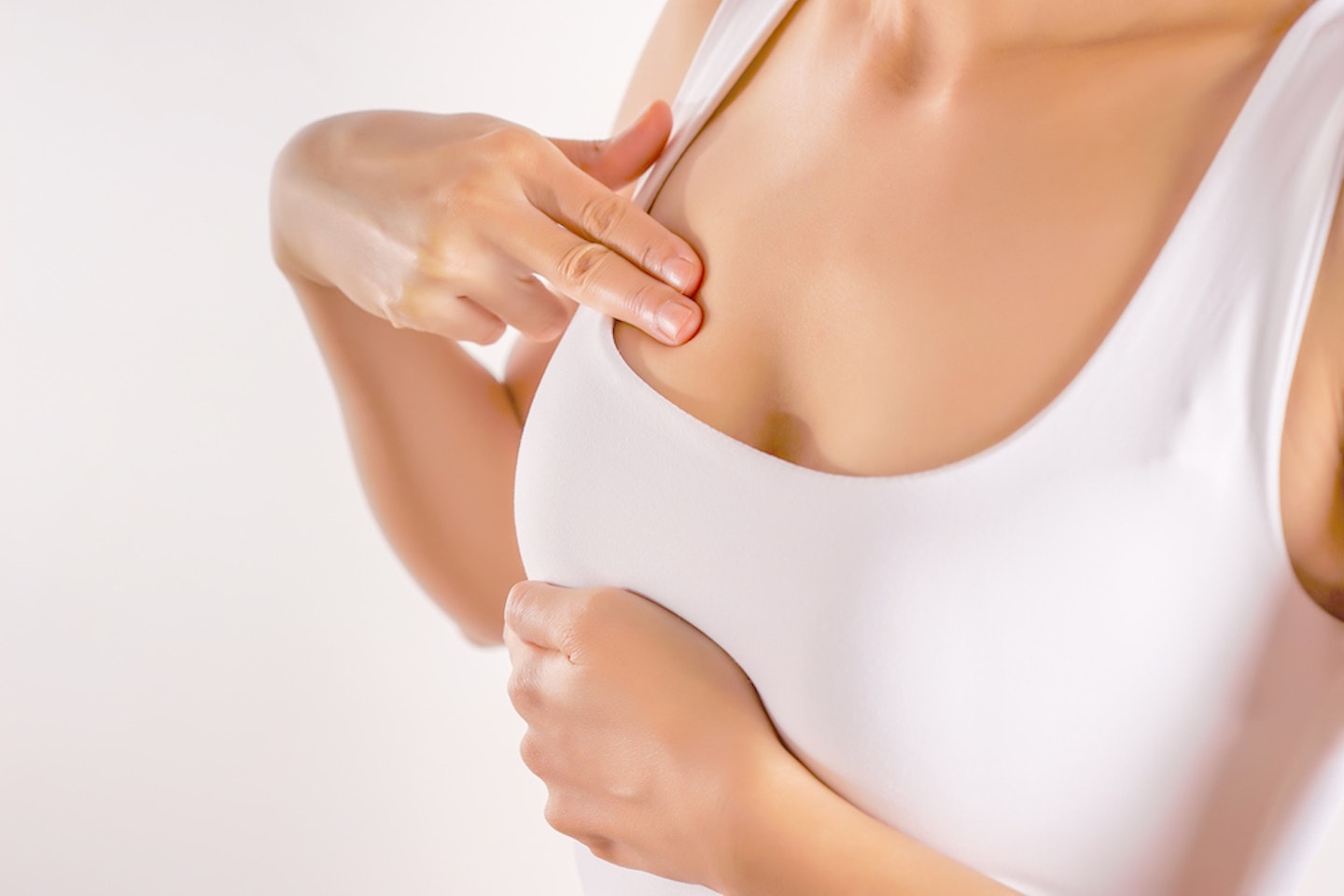 1 of 5
1 of 51) Sore boobs
If this is your first pregnancy, you’re probably wincing when you put on your bra as your breasts will no doubt be quite sore for the first few weeks – one of the first clues that you’re pregnant.
The most tender part is probably your nipples, because of the increased levels of the hormone progesterone and the growth of the milk ducts. Even cold temperatures may cause your nipples to tingle, so try to keep them warm.
Trade in your usual bra for one that isn’t underwired and is designed for pregnancy and encourage your partner to keep his hands off your chest, until the pain subsides.
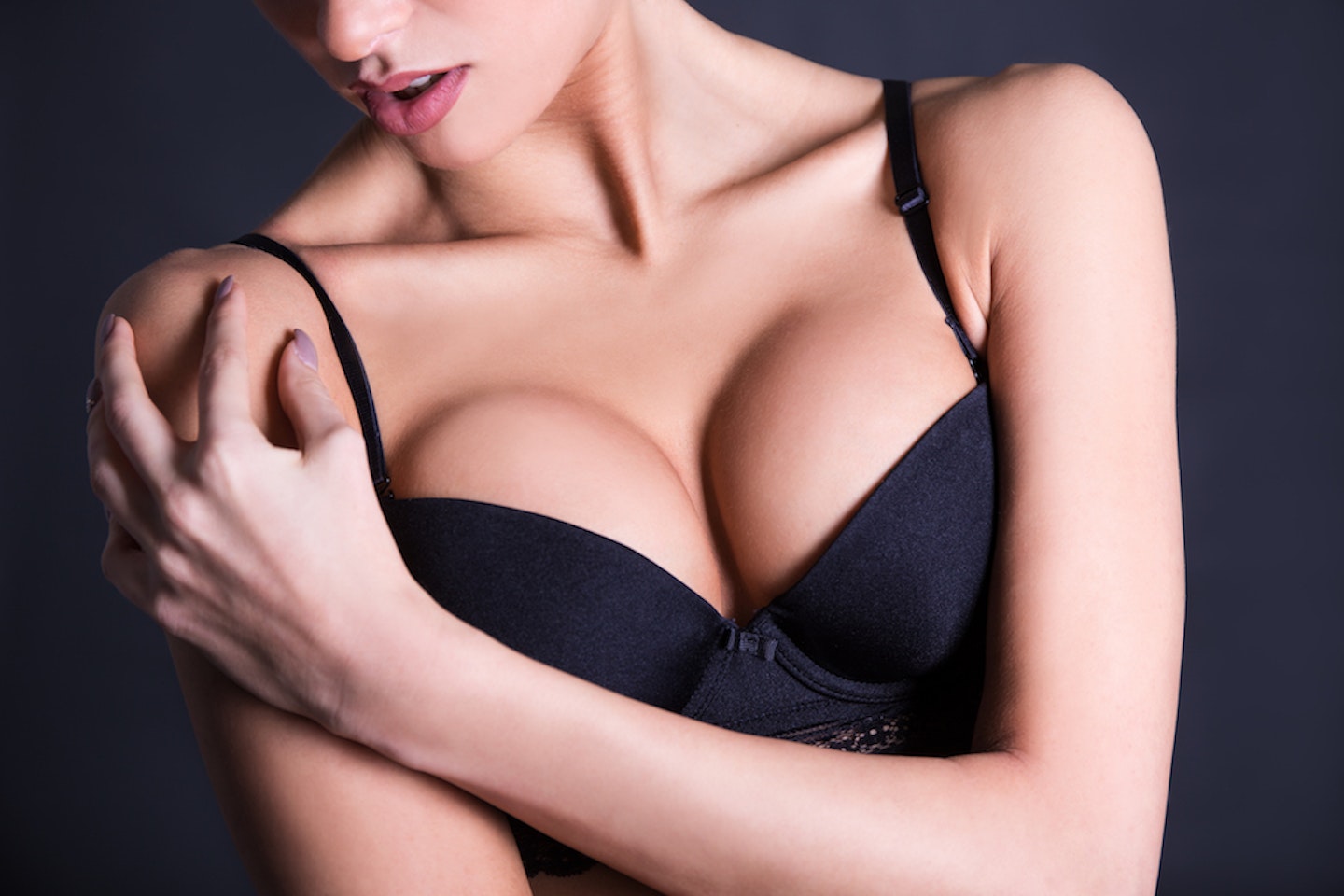 2 of 5
2 of 52) Bigger breasts in pregnancy
Your breasts will obviously grow bigger during your pregnancy (think of it as a free temporary boob job). Throughout your pregnancy, you’ll probably find that your cup size will increase by at least one and possibly two sizes. If you have additional breast tissue, you may also find that this growth extends up into your armpit.
‘This growing can cause your breasts to become really itchy,’ says Dr Dib Datta, consultant obstetrician and gynaecologist. ‘This is because the skin is stretching and can mean that you are left with stretch marks.’ Avoid this by using oils and creams that are designed to fight againststretch marks and pregnancy scarring.
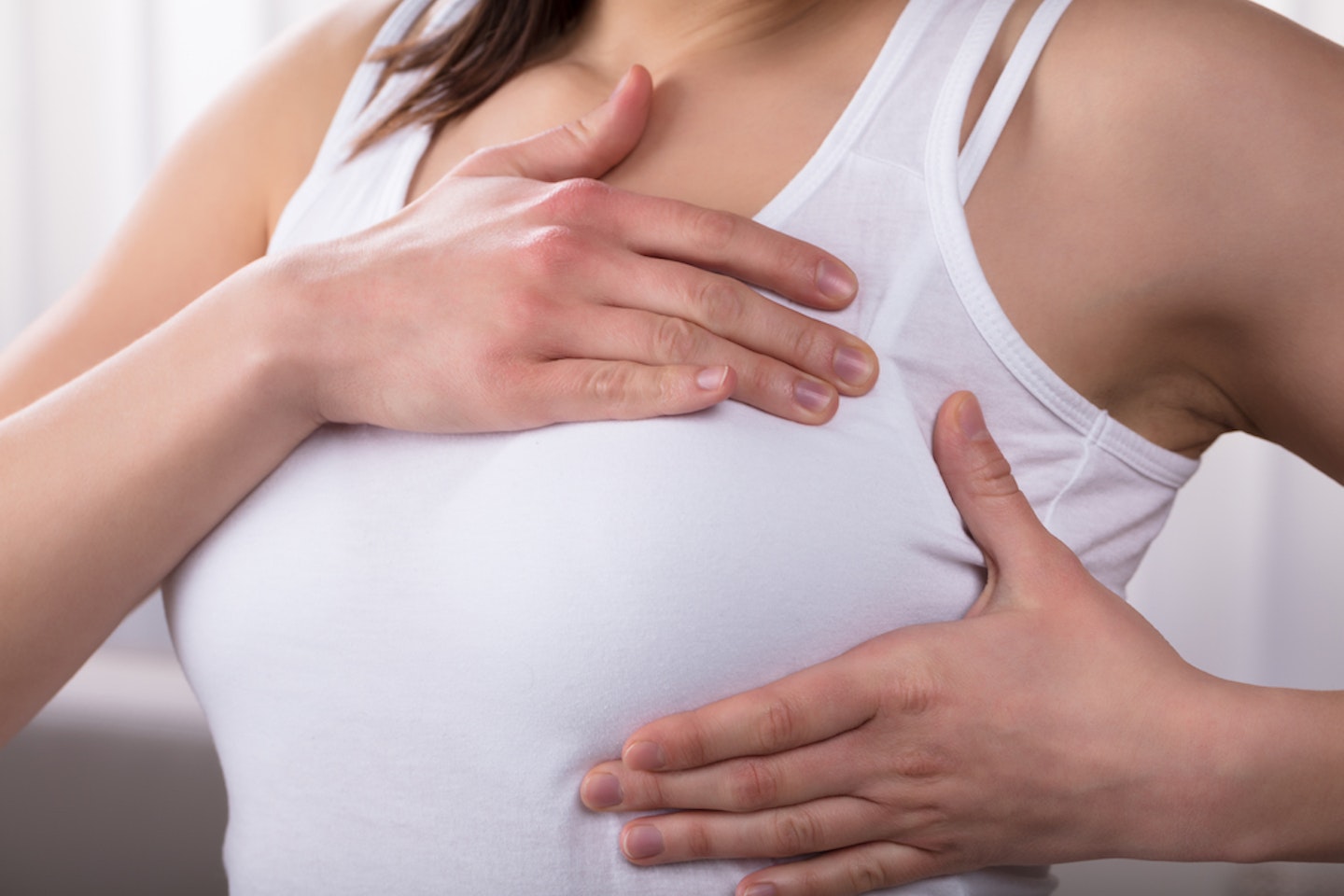 3 of 5
3 of 53) Changes in breast appearance
As you get further into your pregnancy, your nipples and the areola (the area surrounding the nipple) may darken noticeably. Your nipples may become puffy and swollen looking.
Don’t stress if your breasts start to resemble roadmaps as the veins on the surface become more noticeable. This is perfectly normal and due to the increased supply of blood to your breasts.
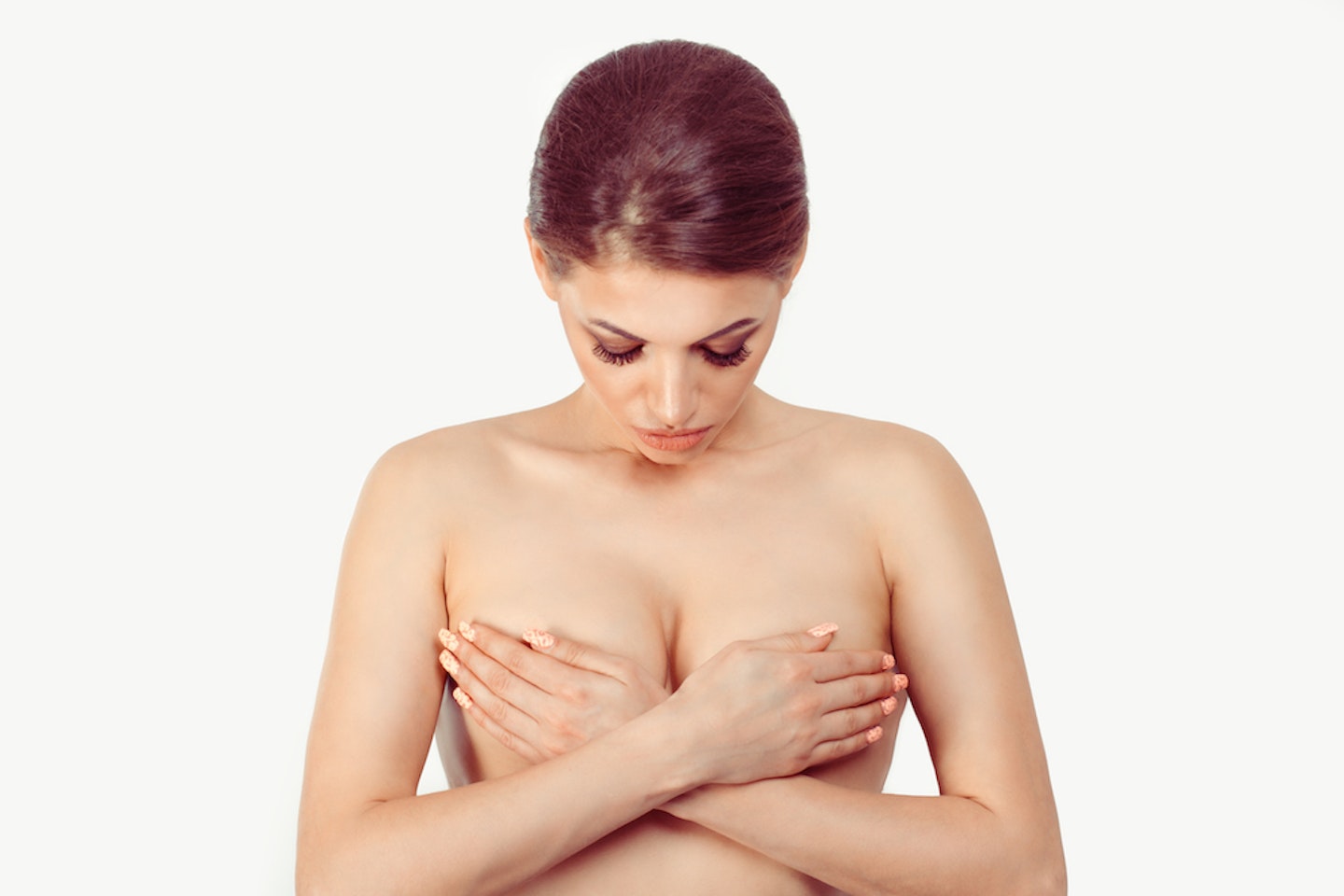 4 of 5
4 of 54) Leaking milk
By the time you’re around 16 weeks pregnant, your nipples may start to leak.
‘Your breasts might secrete colostrum, a thick and yellowish fluid,’ Dr Datta explains. ‘This is the first type of milk that you’ll produce and is completely normal.’
Simply pop a breast pad inside your bra to avoid an embarrassing wardrobe faux pas when the leaking occurs. If your nipples are also feeling sore, you may also want to start using a nipple cream.
You may spot small amounts of blood leaking from the nipple. While this is common – it’s just happening because of the sudden growth of blood vessels – it’s best to get this checked by your GP.
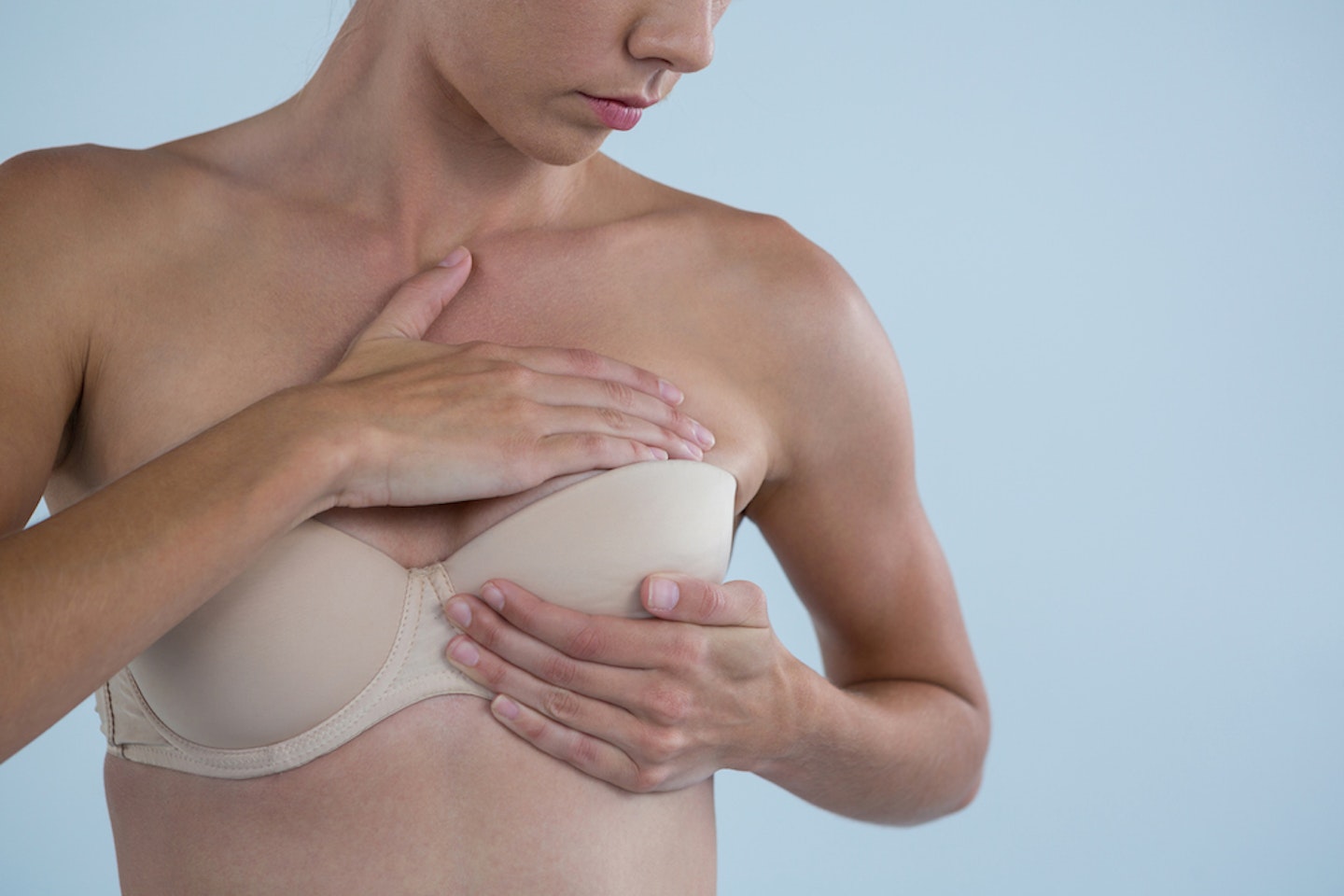 5 of 5
5 of 55) Lumps in your breasts
Finding a lump in your breast is scary, but during pregnancy, this is often nothing to worry about and has only developed because of all the hormones in your body.
Usually, pregnancy breast lumps are cysts of some description. The most common cysts are fluid-filled sacs, but galactoceles (milk-filled cysts) and fibroadenomas (fibrous tissue) can also occur during pregnancy.
Get your lump checked out by your GP, who will be able to tell you if it needs treatment or not.
Real mums share how their boobs changed during pregnancy
'I knew I was pregnant before I did a test because my boobs changed overnight - they grew several sizes and became bowling balls. During pregnancy they were so sensitive, even the duvet at night was too heavy and painful. Even before my bump was showing, I could no longer sleep on my front at night (and still can't, three years on!). I had to move to wireless bras at about 5 months. Nothing could help relieve the tenderness, and there wasn't a bra around that could support them enough. What helped was lots of lotions and creams, both to keep the skin soft but also to just give them a bit of self-care. Soft sleep bras also helped when I was pregnant, and afterwards' - Sophie Knight, mum to Eli.
'Interestingly and something I never knew before getting pregnant or even for the whole 8 months of being pregnant...I was able to produce milk before my baby was born! This is known in the parenting industry as 'colostrum harvesting'. So at around 8 months pregnant, during one of my last midwife appointments, my midwife gave me a couple of syringes and said to 'express some milk if I could'. I had noticed already that me breasts had grown in size, probably about two cups larger at this point. So I sat one evening with my husband and expressed two syringes full of milk (colostrum). After speaking to My Expert Midwife, Midwife Leslie on Mother&Baby's Instagram live for World Breastfeeding Week 2020 (LINK TO THE LIVE VIDEO), she informed me that there are also things such as 'egg cups' which you can buy and express the milk into there and then deposit into your syringes. I was express my droplets straight into the syringes! You can imagine the sight. So during pregnancy, my breasts were enlarged by a couple of sizes, I started to use breastfeeding bras and were clearly full of milk right up fo 40 weeks and 4 days pregnant, when my son, Parker arrived into the world' - Maria Martin, mum to Parker.
'For me when I was pregnant there was lots of soreness and tenderness during pregnancy. Once I had my babies I found that I was engorged a lot so I had lots of milk and I felt rockhard at points and they looked like they had veins popping out all over the place. During breastfeeding I have found that my breasts have changed shape and changed size and often I look in a mirror and they're different sizes! They will be really big one day and really small the next. One day one will look high and the other hanging low – ha ha ha ha!' - Chaneen Sailee, mum to Jasmine and Ocean.
Ways to help tender boobs in pregnancy
Sore and tender boobs are bound to affect you at some point during your pregnancy, but to help ease the pain a little, there a some things you can do to help says Marley.
'Wear a good fitting bra as this will help to support heavy tender breasts. Some women find that their nipples & areola become dry which can and to the soreness so moisturising them with a light cream or petroleum jelly can help.'
Sophie Knight is a journalist and mum of two, and previously edited motherandbaby.com before moving on to write about family cars for Parkers.co.uk. Sophie went on to become Commercial Content Editor for M&B,_ Closer, Heat, Empire, Yours, Garden News, and WhatsTheBest.co.uk before deciding to dedicate more of her time to her family and write freelance._
